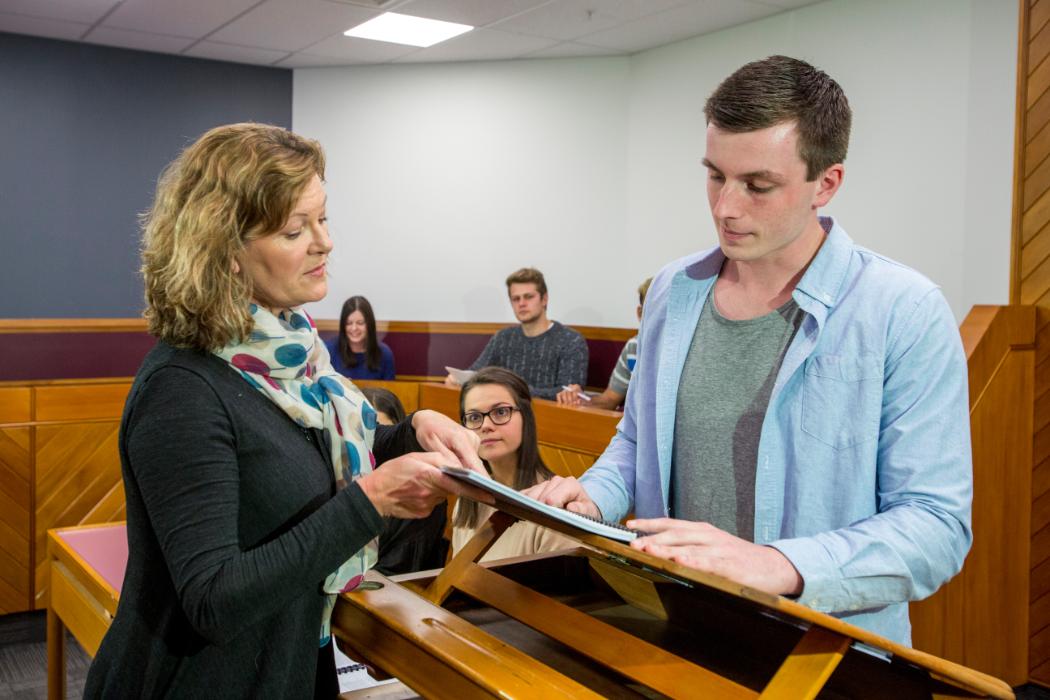Our students develop essential professional skills, experience and networks by getting involved in practical learning experiences and community engagement on and off campus. Find out more about our innovative teaching and learning initiatives and the opportunities to get involved.
Work-ready graduates
Our student-focused teaching helps students develop the skills they need for a seamless transition to professional life.
Providing opportunites to use and develop crucial legal skills - oral and presentation skills, concise and accurate written communication, teamwork, adaptability and quick thinking - sets UC law students up for their future careers.
The Faculty of Law's groundbreaking research in curriculum design and teaching methodology has led to substantial and ongoing changes to our course delivery.
Research-based innovation
Our longitudinal study has collected rich data about student aspirations, expectations and satisfaction in their law degrees that has prompted changes in the way our staff teach.
It has led to creative course delivery and assessment in many of our courses.
Creative course delivery
- Using real case files as forms of assessment
- Online and pub quies for revision
- Online forums for student discussion and preparation
New forms of assessment
- Posting legal outputs on international blogs or Wikipedia
- Oral skills assessments
- Simulated real-time group exercises
- Grand debates
- Haiku wiki
Learning snapshot
Media madness
The Media Law breaking-news simulation exercise is unique in New Zealand law schools. Students are assigned randomly to become members of two or three-person law firms and advise a journalist client over a two-hour period on a breaking story in which the facts were based on a real news event. The clients are senior journalism students close to graduation and already writing stories for publication in the media – as close to the real thing as they could be!
Law students identify specific issues and give advice under pressure of time and pressure from the journalists who wanted to publish as much information as possible.
'Blown away'
Course convener Ursula Cheer developed the exercise. "I was blown away to see my students laugh, shout and share cell phones, laptops and textbooks, while sitting cross-legged on the ground outside, inside or wherever suited them during the exercise while I literally became invisible to them.
"Afterwards they presented me with serious and carefully drafted group opinions and then let rip with mighty praise and suggestions for improvement in individual reflections which in turn engaged and challenged me," she said.
Student feedback
Her students also rated the exercise highly. One student from her 2016 cohort reported that it "was the best, most enjoyable and most relatable to the real world exercise I have ever participated in at university. The two hours flew by and I was left feeling accelerated and with a great sense of achievement! The exercise was able to test our adaptability, quick thinking and teamwork skills in a way no assessment I have ever done, has been able to do."
Club Competitions
UC's active Law-based student clubs organise events and activities throughout the year. Find out about upcoming events on their webpages.

